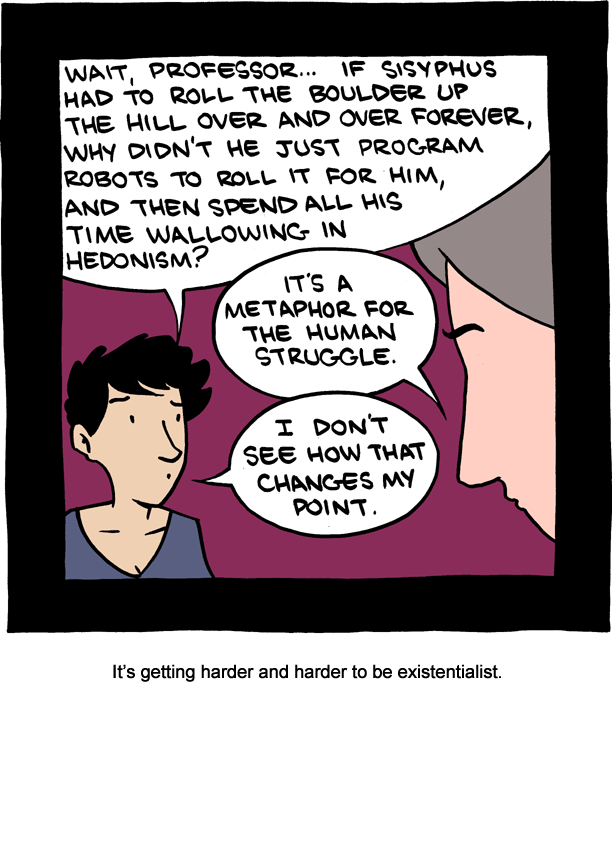On Monday I proposed a deal: If you keep a detailed (definition of “detailed†below) reading journal for our current work, one that includes as much or more information than an average essay, and turn it in at the end of the reading, you do not have to write a paper.
My hypothesis: A few of you would decide to just write the paper, as you are familiar with that routine and comfortable with your writing process; most of you would write down a few words you don’t know, perhaps a summary of the reading, a few questions, and be through with it; and a few would run with the idea, draw character maps, look up outside information, learn new words, come to class with questions about weird sentences and quote interesting passages.
The bell curve, right? Shame on me; I should have known better.
The past few days in class have blown me away. Nearly all of you have come to class with questions about the reading (or viewing, in Brit Lit), words you’re not sure about, connections you’ve made with outside works, points I’ve missed, and interpretations I hadn’t considered. You all seem to be enjoying the readings more (even though you have to write as you go), and understanding them in more depth. I’ve practically thrown out all my prepared questions for the past few days; yours are much better. I can’t wait to sit down with your journals at the end.
While I wrote this on the board, here is the list of things to look for or record in your journal:
- Questions about the work. We read so we can learn. If we don’t have questions, we need to read more difficult material.
- Figurative language: metaphors are always important, but so are all of the other words we reviewed at the beginning of the year. Check your handout.
- Words you don’t understand. If they might be vital for you to understand a passage, look them up immediately. Otherwise, look them up afterward. ((Ninjawords.com is great for this. Simply put all of the words, separated by commas, into the search box, and you’ll have a list of definitions. For the truly adventurous, try this online etymology dictionary for where it came from and related words.))
- Interesting passages with citations—this does two things:
- Helps you keep track of the important parts of the story, so when someone asks “When did the character do this?†you can quickly save the day. Also helpful when writing papers…
- Helps you develop as a writer. Writing down cool sentences (not copy-and-pasting them) helps you get a feel for the language (and grammar, and punctuation) and helps you remember quotable lines.
- Connections with other works, ideas, philosophies, medical conditions, etc. The great thing about English classes is that we can write about anything. Do Hamlet’s actions match the symptoms of a medical condition mentioned in the ICD-9? What about Meursault’s? How closely does the plot of The Lion King sync with Hamlet? etc. Go nuts with this one; the crazier the comparison (if solid), the better the paper.
- Sketches, drawings, diagrams. I don’t draw much in my own journal, but if you are a visual person, go nuts! The only person who needs to be able to understand your journal is you.
- For all of the above: write down your reactions. I can’t emphasize this enough: write down your reactions. If a character does something hilarious, crazy, confusing, terrifying, completely out-of-character, make note of it. If it reminds you of something, write it down. Books are meant to be interacted with, not simply absorbed.
You will turn in your journals the day after we finish the work. I will read them over that night, and return them to you the next day. I will not write in them, but simply give you advice on organization, some things you should focus on, etc. (I might steal some ideas for my own journal, too. Hope you don’t mind.)
If your journal is detailed enough (covers the entire work, or Act III through the end of Hamlet), you will be excused from the final essay. If you chose not to create a journal, or it seems a bit sparse (or is simply a list of quotations without your reactions), I will ask you to write the paper.
We will be creating reading journals for every reading assignment from here on out. For our next unit, I’ll show you how to write most of your essay in your journal before we even finish the novel.
Send me an email if you have questions, or post them below.
This is going to be an amazing year.

